Although, initial studies concerned the development of novel gene therapy methods for various cancer types such as cancers of the lung, prostate and breast etc. including auto-immune diseases like rheumatoid arthritis, gene and cell therapy of diabetes became the priority in research due to alarming incidence of diabetes in the whole world. Accordingly, pancreatic islet transplantation fortified with gene delivery became a popular area of interest in the Center
Human Gene Therapy Unit was first established in 2003 by Dr. Salih Sanlioglu at the Akdeniz University, Faculty of Medicine in order to initiate gene therapy research in Turkey. Soon, the infrastructure of the gene therapy research laboratory was completed and research results were published in the leading gene therapy journals such as Human Gene Therapy, Gene Therapy, Cancer Gene Therapy, Current Gene Therapy etc. In order to substantiate our leading position in the country, gene therapy unit was restructured as the Center for Gene and Cell Therapy of Akdeniz University bylaw published on official gazette 27701-dated September 16, 2010.
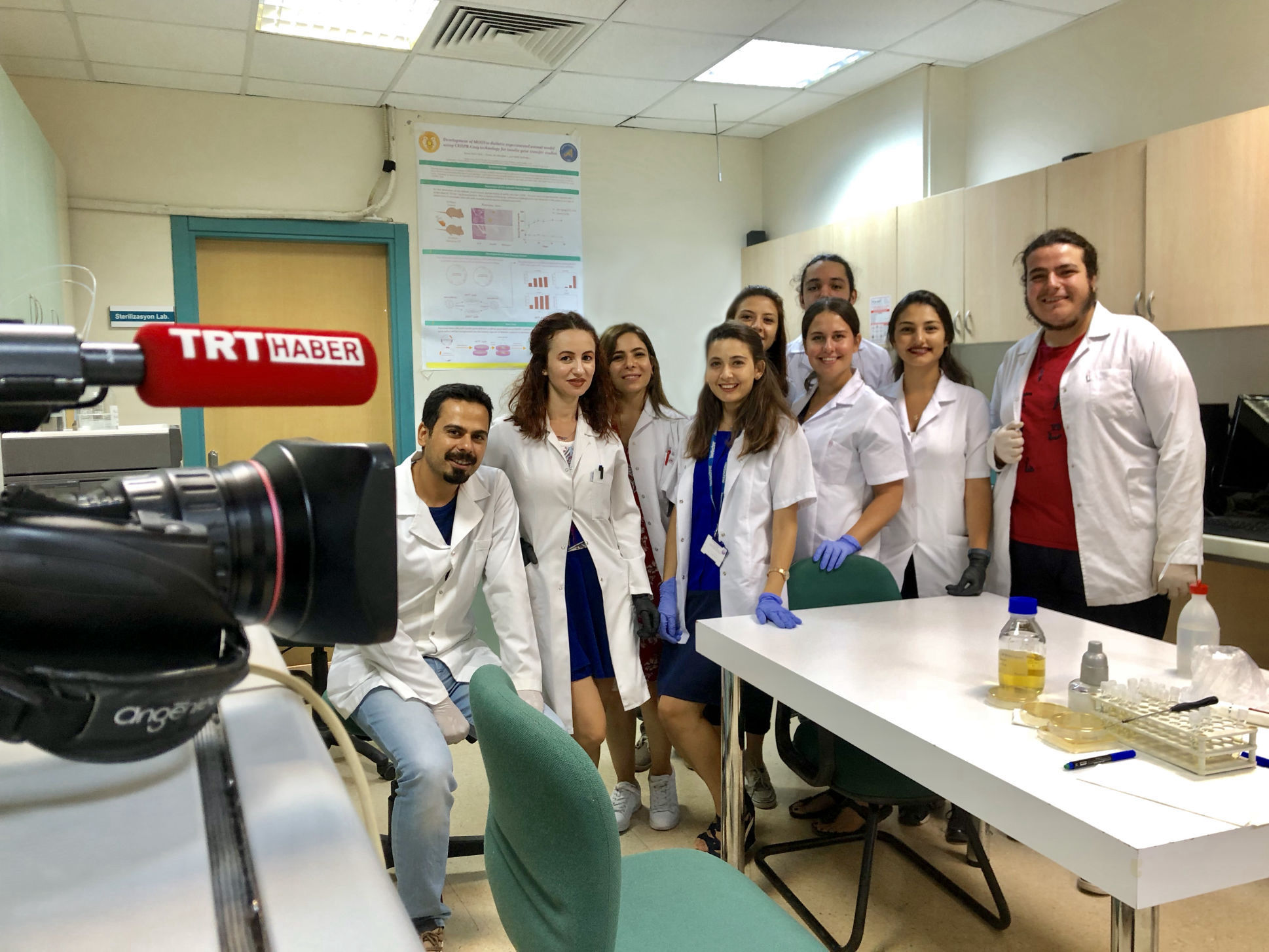
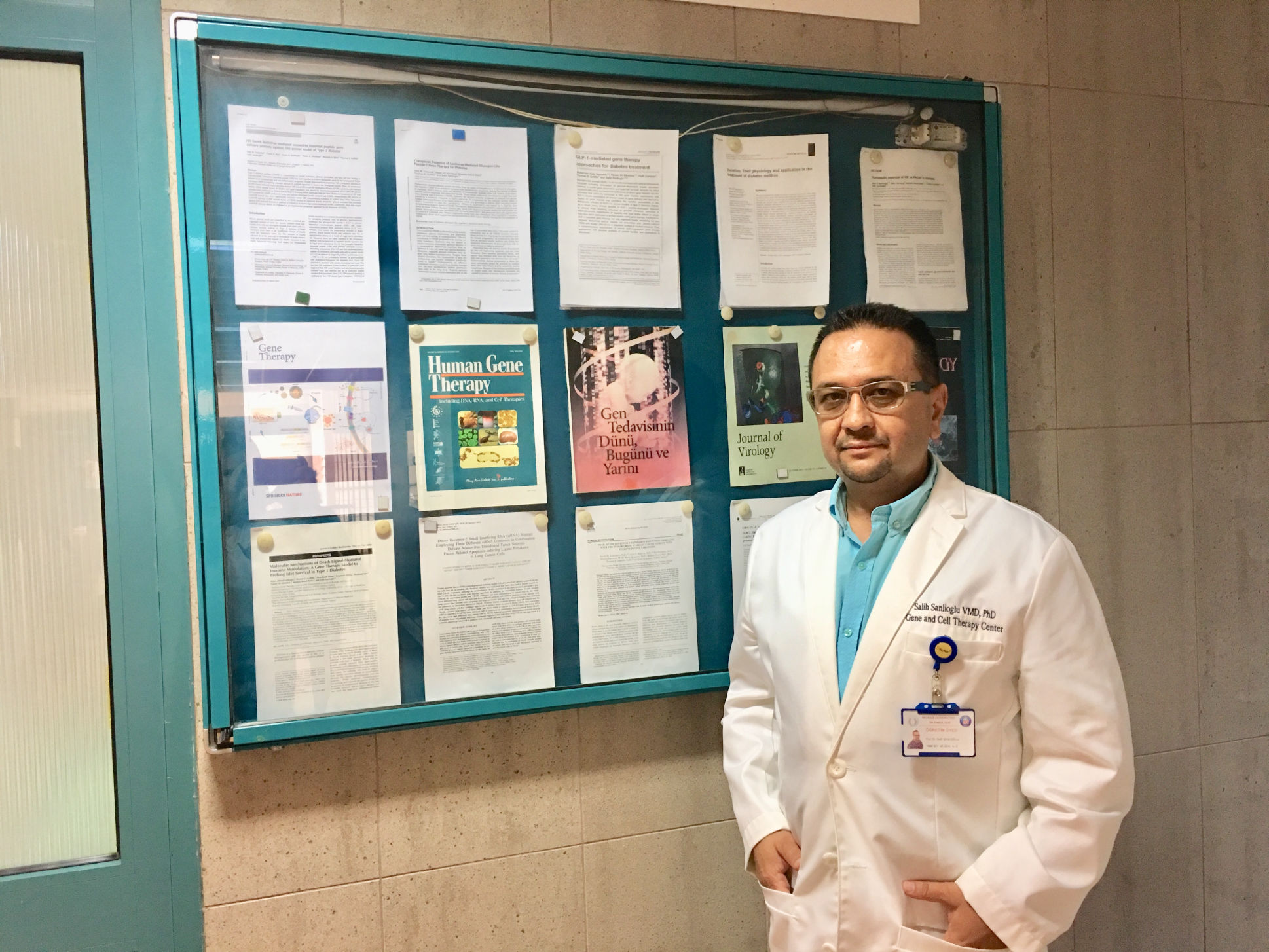
The use of adenoviral vectors for the treatment of prostate cancer was the first gene therapy related research activity performed in the center. The fact that not all prostate cancer cells were sensitive to the adenoviral delivery of apoptosis inducing gene TRAIL encouraged the scientists in the center to develop a novel siRNA strategy as a complementary gene delivery modality. This led to down-regulation of a specific decoy receptor expression on cell surface then the prostate cancer cells became sensitive to apoptosis inducing effects of death ligand known as TRAIL. These studies were conducted in close collaboration with our colleagues from the University of Iowa Gene Therapy Center in which the first gene therapy clinical trial against the prostate cancer patients was conducted by our collaborator Dr. Thomas S. Griffith.
In order to conduct clinical trials in a center, it is necessary to have some years of research experience (preferably 5-10 years or more) in the field of gene and cell therapy. During this time scientists and clinicians have to work in a collaborative fashion. Research results are expected to be published in well-known gene and cell therapy journals if possible, supported by international societies such as American Society of Gene and Cell Therapy or European Society of Gene and Cell Therapy.
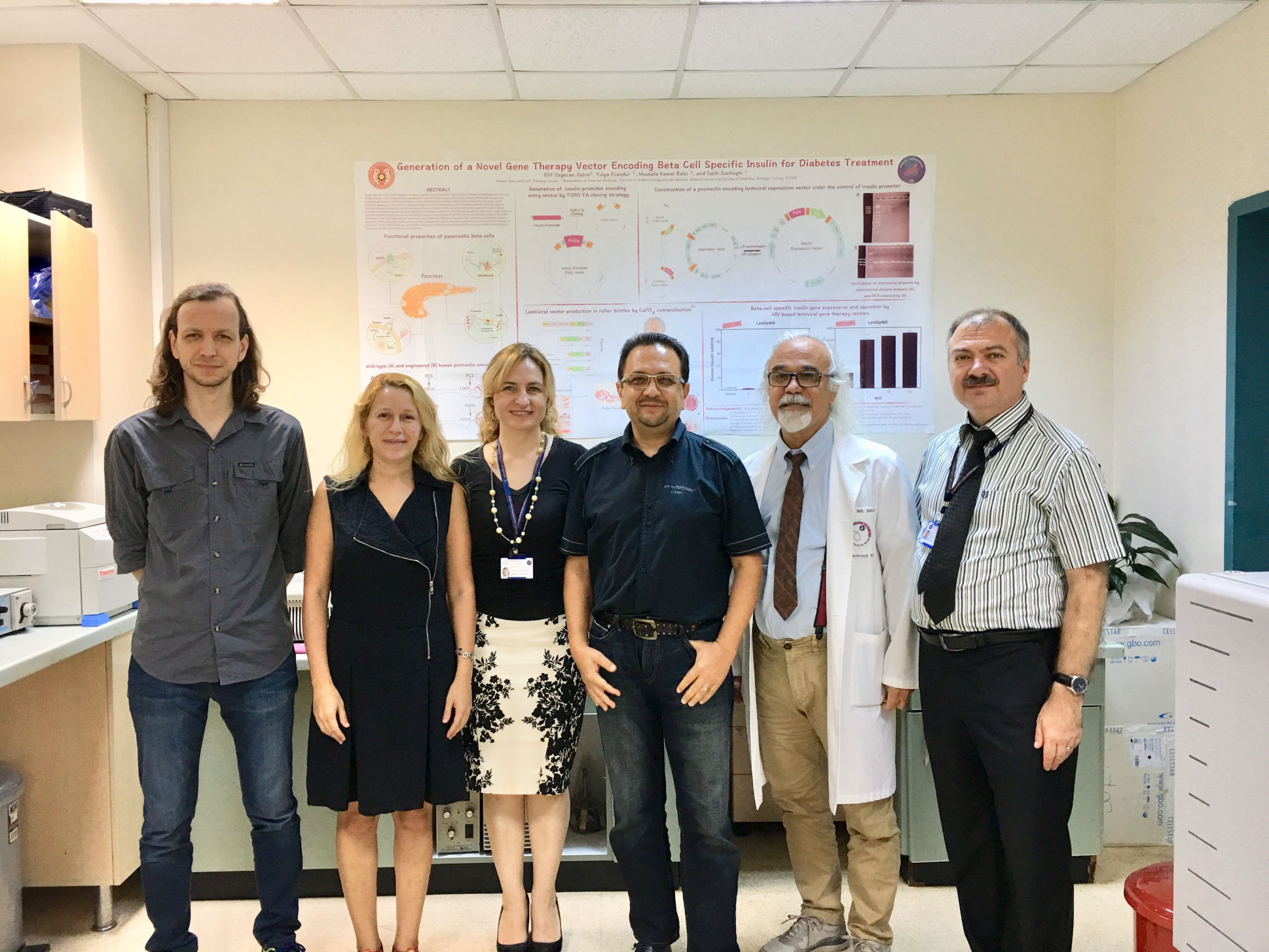
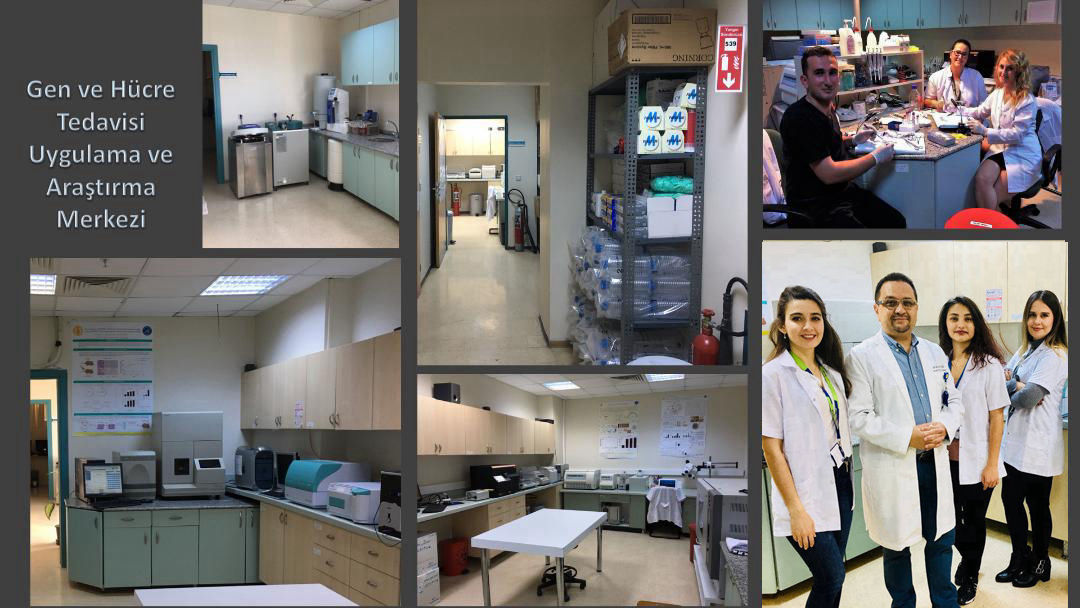
Furthermore, there has been a great interest in the production of clinical grade gene therapy vectors in the Center. However, vectors used in clinical research have to be produced in compliance with cGMP regulations. Both the Institutional Review Board and Food and Drug Administration have to approve proposed clinical trial prior to start of the project.
In order to compensate that, a huge effort is currently being spend in getting financial support to set up cGMP level vector manufacturing laboratory from different resources though the effort has not yet landed in success. Without a doubt, in a couple of years down the line, clinical grade vector production will become a reality in our center.
Bioreactors, biofermantors, liquid chromatography systems, cGMP certified instruments are all planned to be acquired for this purpose. Additionally, primate studies will be conducted to test the the safety and the efficacy of the state of the art gene therapy vectors produced in the Center. Consequently, the Center for Gene and Cell Therapy is dedicated to the development of novel gene and cell therapy methods for the treatment of human genetic diseases. It is a pioneering gene therapy research center in the country.
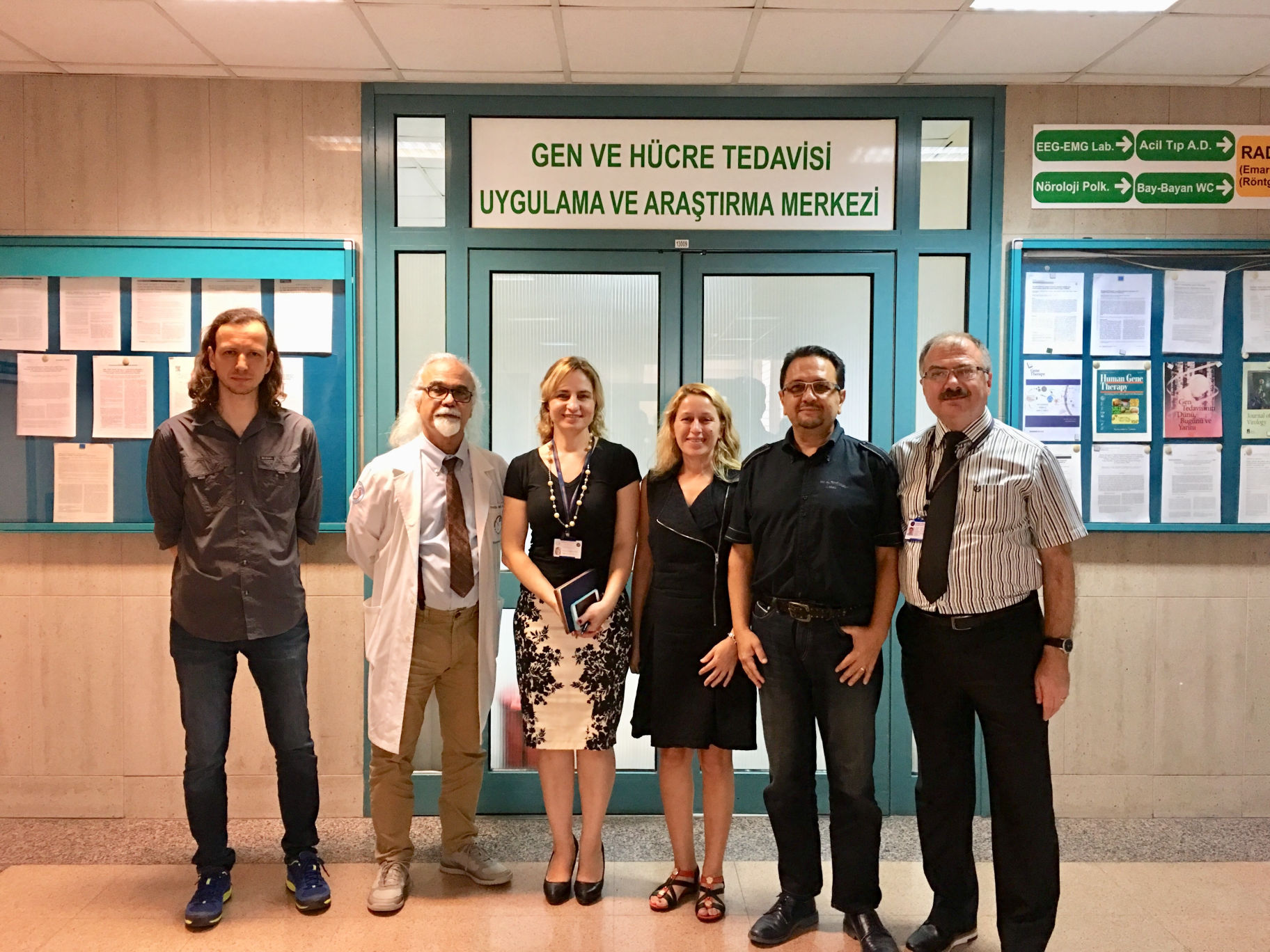
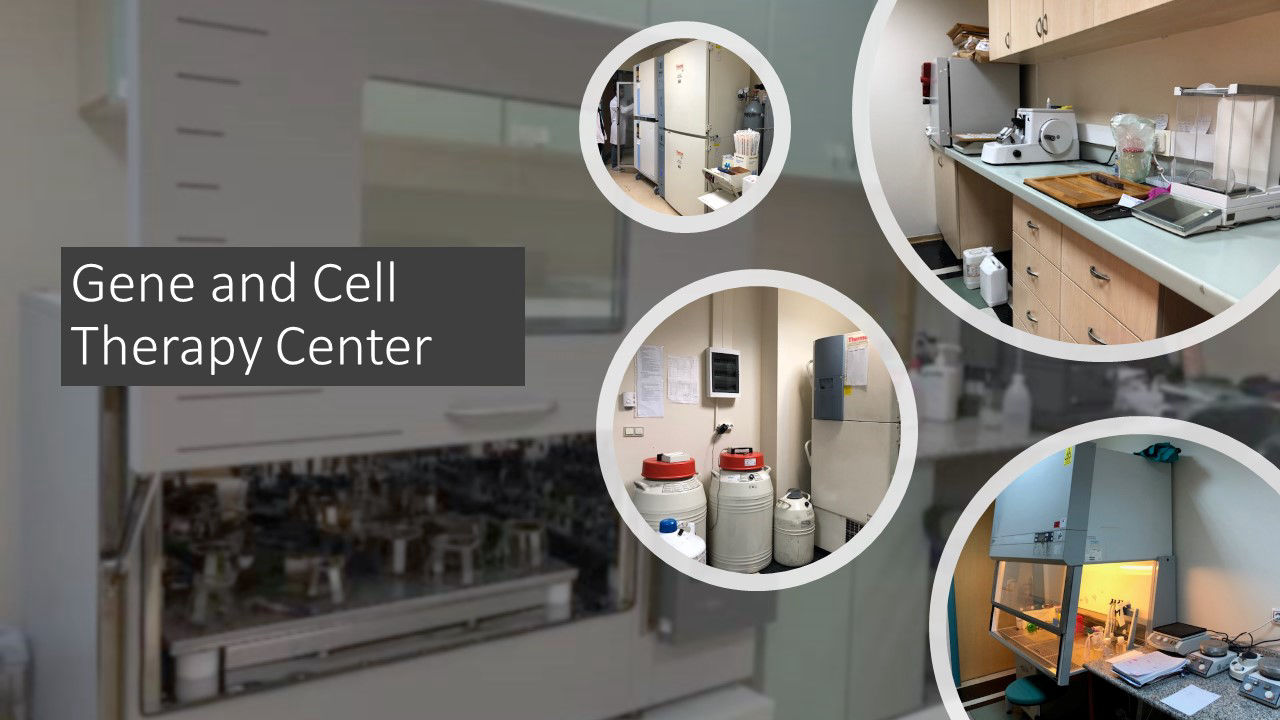
Administer the state of the art molecular genetic profiling methods for personalized medicine. Establish experimental novel gene and cell therapy methods effective in treating human genetic diseases. Diabetes and Cancer have a priority due to their prevalence. Special emphasis is given to the generation and production of lentiviral, retroviral and adenoviral vectors. Testing of the therapeutic efficacy of novel vectors in gene therapy clinical trials. Organize meetings, scientific symposium and panels for the purpose of disseminating gene therapy information. Establish a communication bridge among scientists working on gene therapy around the world. Sponsor, support and finance gene therapy initiative in the country. Establish the foundation of the Turkish Society of Gene and Cell Therapy.
Develop novel molecular genetic profiling scheme to determine susceptibility of an individual to genetic diseases.
Treat and cure both acquired and inherited human genetic diseases utilizing the most advanced gene and cell delivery technology. Deploy personalized medicine in the context of gene and cell therapy.
Set up a clinical vector production laboratory conforming to cGMP regulations. Generate the most effective and advanced vectors for clinical use. Design and conduct gene therapy clinical trials. Provide consultation services to patients seeking gene therapy.
Mobirise gives you the freedom to develop as many websites as you like given the fact that it is a desktop app.
Publish your website to a local drive, FTP or host on Amazon S3, Google Cloud, Github Pages. Don't be a hostage to just one platform or service provider.
Just drop the blocks into the page, edit content inline and publish - no technical skills required.
Created with Mobirise
Free HTML Generator